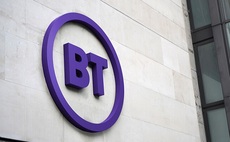A Lib Dem/Labour coalition would struggle to agree on the right government IT strategy, say experts
Nick Clegg's Lib Dems do not see eye to eye with Labour on key IT issues With ICM and YouGov polls this week predicting a hung parliament, experts warn that Whitehall IT procurement plans could b...
To continue reading this article...
Join Computing
- Unlimited access to real-time news, analysis and opinion from the technology industry
- Receive important and breaking news in our daily newsletter
- Be the first to hear about our events and awards programmes
- Join live member only interviews with IT leaders at the ‘IT Lounge’; your chance to ask your burning tech questions and have them answered
- Access to the Computing Delta hub providing market intelligence and research
- Receive our members-only newsletter with exclusive opinion pieces from senior IT Leaders




















